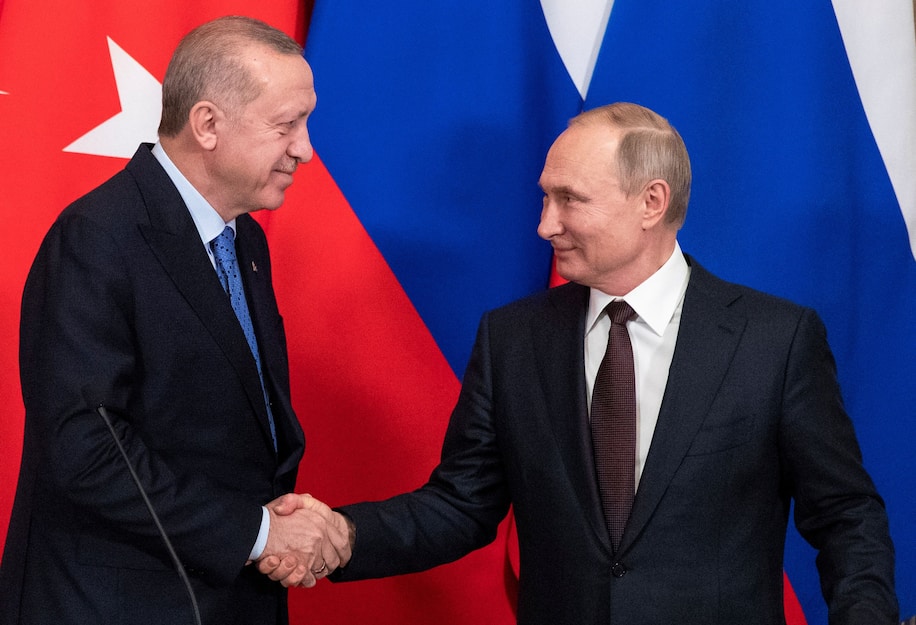
Turkish President Recep Tayyip Erdogan, left, and Russian President Vladimir Putin after talks in Moscow in March. (Pavel Golovkin/Pool/Reuters)
Trump administration to impose long-awaited sanctions on Turkey over Russian missile defense system
The defense bill orders the administration to take steps against Turkey within 30 days using at least five categories of sanctions that Congress approved under the Countering America’s Adversaries Through Sanctions Act, better known as CAATSA. Lawmakers in both parties have argued that the law, passed in 2017 to limit countries and individuals from cooperating with defense, energy and other sectors of Russia, Iran and North Korea, ought to be applied against Turkey and the Turkish officials responsible for last year’s purchase of the S-400 system.
One signal that that equation was changing, even beyond the defense bill provisions, came last week in comments from Trump’s ambassador to NATO, Kay Bailey Hutchison.
“We are concerned about some of the Turkish behavior. . . . The idea that you could put a Russian-made missile defense system in the middle of our alliance is out of bounds,” she said ahead of a NATO foreign ministers meeting.
At the closed-door virtual session, Secretary of State Mike Pompeo accused Turkey of playing into the hands of Moscow by buying the Russian missile defense system despite allied opposition, Agence France-Presse reported. In what was described as a “punchy” exchange with Turkish Foreign Minister Mevlut Cavusoglu, Pompeo reportedly called on Ankara to start acting like more of an ally.
Meanwhile, European Union leaders meeting in Brussels on Thursday were also considering expanding sanctions against Turkey over its “illegal activities” in the eastern Mediterranean, where it is exploring gas reserves in waters claimed by E.U. members Greece and Cyprus.
There was no immediate reaction to news of the imminent sanctions from Erdogan, who was returning from a trip to Azerbaijan on Thursday night. On Wednesday, speaking to reporters before he left, Erdogan condemned U.S. criticism of Turkey and again framed his country’s weapons purchases as a sovereign right.
“When anything comes to mind, you see that immediately sanctions are put on the table. What kind of process is going on between Turkey and America? Are we not together in NATO? Are we not two important countries in NATO?” he said. “We do not find the steps they have taken nor the statements they have made regarding our arms purchases to be elegant.”
When President-elect Joe Biden takes office, he added, “we have to come together to sit down and talk.”
“We are no strangers with Biden. I know him well from the Obama period. He is someone who came all the way to my home. He even visited me at my home when I was ill,” Erdogan said.
Kareem Fahim in Istanbul contributed to this report.




